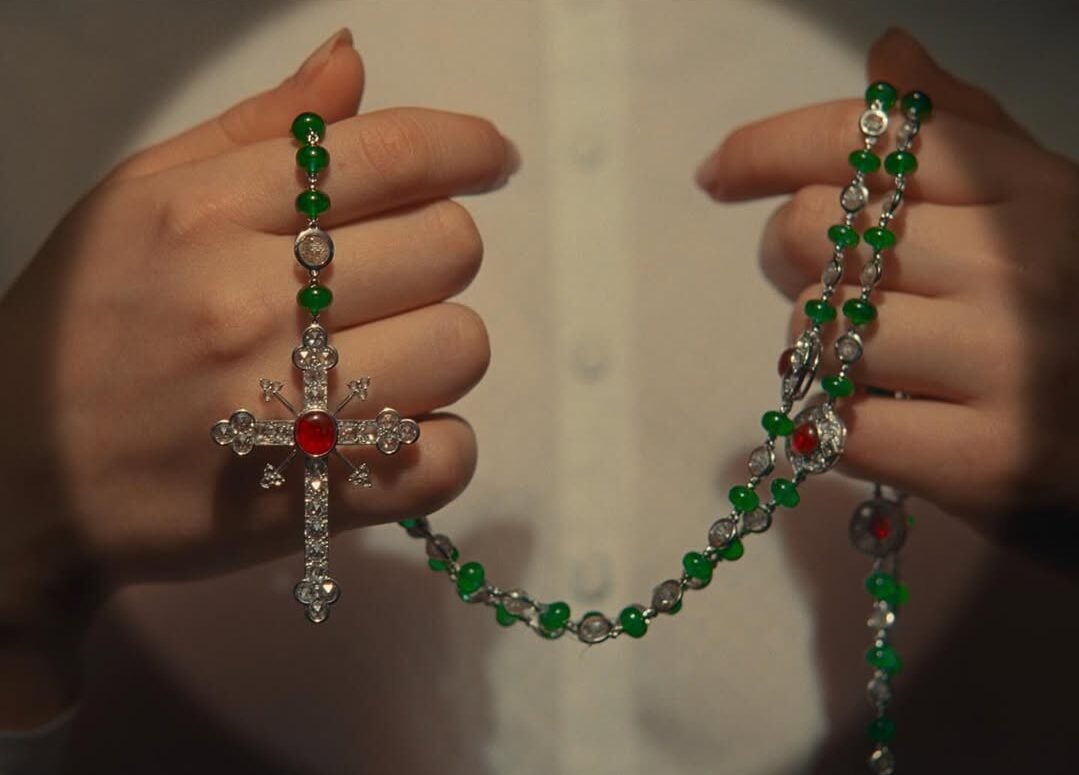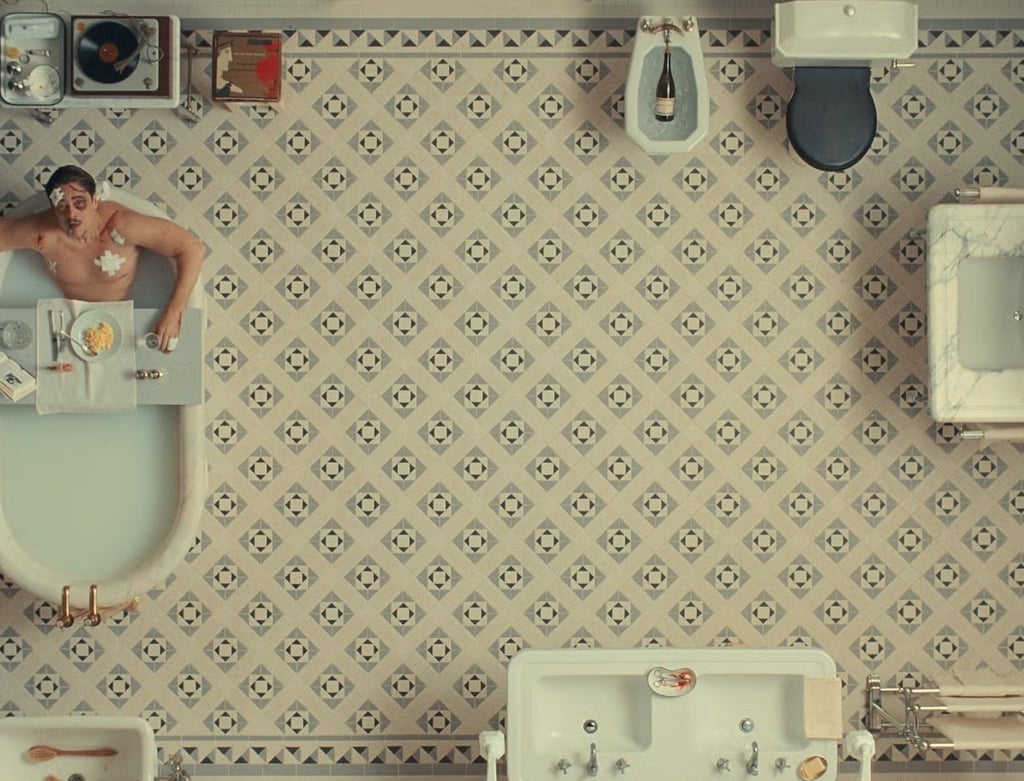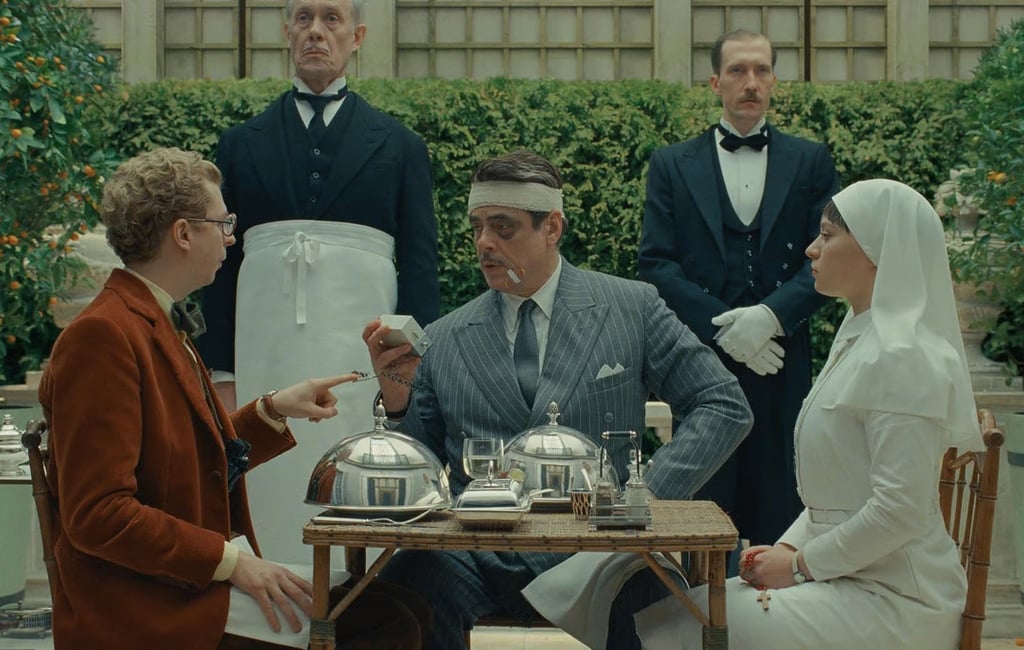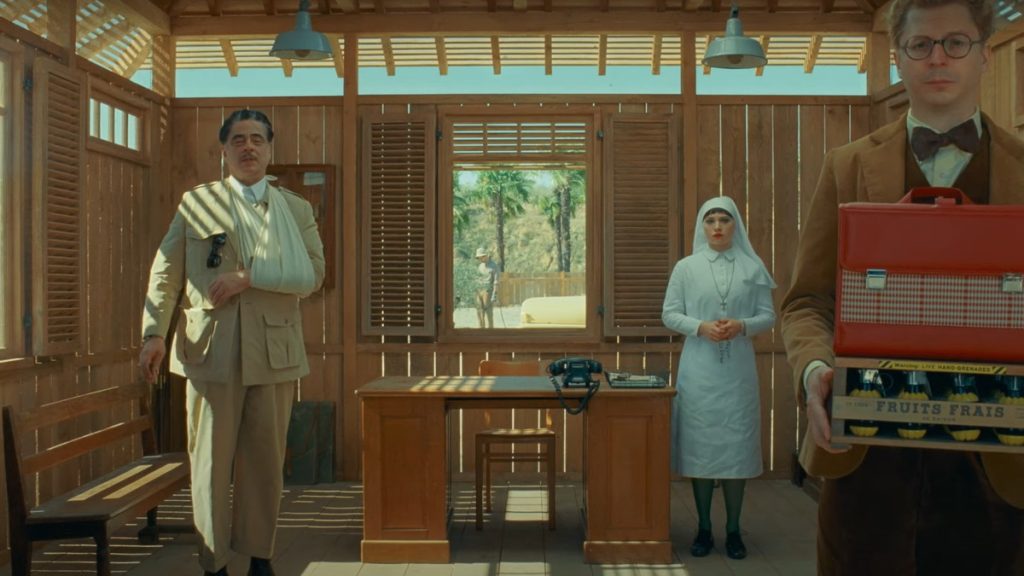The Phoenician Scheme: Redemption in 35mm and Other Capital Illusions
A new Wes Anderson movie, a new adventure in pastel tones – that's what you might expect. But if it were just that, we wouldn't have a valid reason to feature The Phoenician Scheme in this month's newsletter. This time around, I went to see it and registered a surprising rebellion in tones (not really palette-wise). Classified as an espionage black comedy, the atmosphere inevitably takes on far darker tones compared to Anderson's more overtly playful works. And it certainly didn't disappoint.
The true darkness, the kind that only fully reveals itself upon reflection, seems rooted in an unsettling new way Anderson portrays his aesthetic within his narrative universe. Usually seen as a pure expression of artistic rationality, here it reveals a world where every meticulously orchestrated detail expresses the rigid, rational structure of social reality. Within the first 20 minutes, we are already presented with a moment that encapsulates the essence of this black comedy and its darker tones.






This is a classic Wes Anderson setup, an attempt at "clarity and rapid communication," where efficiency is the most valuable outcome. However, in The Phoenician Scheme, this philosophy isn't limited to form; you’ll see that it permeates the very substance of the narrative and its characters and is slowly passed to his protagonists, particularly the main character, whose entire existence is structured in a highly bureaucratized manner, where emotion is banished from the decision-making process. Even his aesthetic this time isn't just an embellishment, but seems to be a mechanism of control and the imposition of an already defined reality. Every scene, every dialogue, feels like a report, a visual annotation in a larger dossier.


She, on a lower stool, sits in the position of a pupil, or perhaps, a subordinate. He, on a higher chair, dominates the scene. She desperately tries to understand her past and their father-daughter relationship. He, however, is completely absorbed in explaining the bureaucratic "technicalities" of her new role, unfurling strategies that aren't romantic visions or ethical aspirations, but ruthless plans riddled with controversies and moral compromises all aimed at achieving capitalist success.
On one side, we have a daughter, played by Mia Threapleton, in her novice nun's habit. This is a visual expression of a spirituality already evident in her firm convictions: "No slave, no famine, no dormitory"—a desire for love and welfare for all. On the other, the father, a tycoon and icon of cynicism portrayed by Benicio del Toro, in an impeccable black business suit. His absolute priority isn't family connection, but the assertion of a role. He doesn't discuss these matters over glossy documents; instead, he houses them in humble shoe boxes of various sizes: pre-packaged, ready-to-use, and irresistible capitalist experiences. This scene is saturated with meaning. Their arrangement is far from random: perfectly squared, utterly rational, with sharp corners and smooth surfaces that reflect the angularity and harshness of the moment, symbolizing two worlds that, on paper, are bound to collide. For narration's sake, however, we are bound to see negotiation.
This negotiation vividly manifests through potent visual symbols: materially, as the daughter's red plastic rosary gives way to a shimmering green Cartier’ s one; spiritually, through the father's imagined trials within a bureaucratic court. Far beyond simple object swaps or static visual frames, these elements collectively forge the assignment of a new place in society and a relentless negotiation of identity, where symbols of faith and morality merge with opulence and expectations.
It's within this rigidly structured world, where even human relationships are bureaucratized, that any glimmer of hope for a release from the system's grip is meticulously packaged and presented as just another commodity. Whether it's the superficial camaraderie of a choreographed basketball game (a cheesy cornerstone of American comedy where "important matters" are discussed over free throws leading to "the ultimate redemption chance") or the daughter's struggle to find spiritual meaning within a material world, redemption is never pure. Instead, it's filtered through the 35mm of cinematic artifice and the glossy reverie of capitalist promises.
So, here's the deal: The Phoenician Scheme is a 2025 espionage black comedy film produced, written, and directed by Wes Anderson himself, from a story he cooked up with Roman Coppola. It even made its grand debut in the main competition at the 2025 Cannes Film Festival on May 18, 2025. We've just scratched the surface of what makes this movie tick, but trust me, the real magic is in seeing how Anderson takes his signature style and twists it into something darker, since it's not what we're quite used to. If you're curious to see how his famous aesthetic becomes a powerful commentary on control itself, then you absolutely won't want to miss it. Go see The Phoenician Scheme and discover this unexpectedly profound evolution of Anderson's unique vision for yourself. It's truly something.
